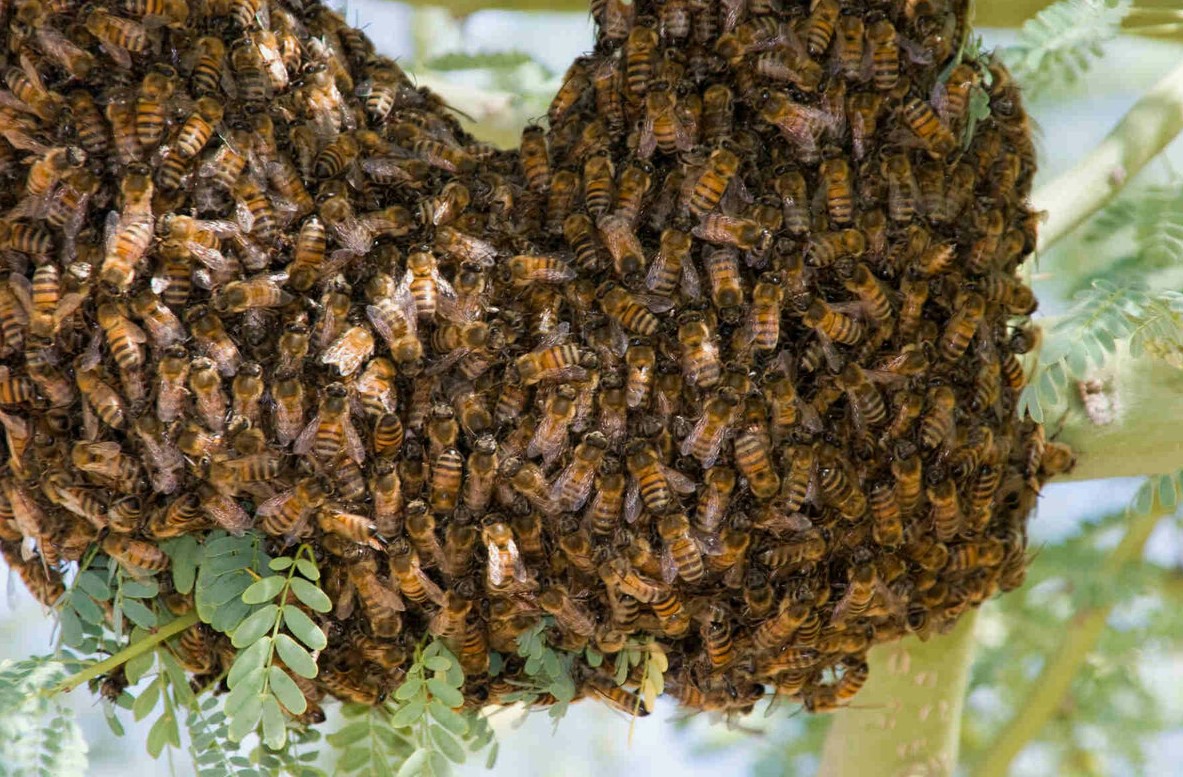In today’s world, pest control is vital for protecting homes, businesses, and agricultural lands from invasive species that can cause harm. However, as our awareness of environmental issues grows, the ethics of pest control must be reconsidered. One of the central challenges lies in balancing human safety with the preservation of essential pollinators like bees, whose populations have been in sharp decline due to environmental changes, pesticides, and habitat loss. An ethical approach to pest services requires minimizing harm to beneficial species like bees while ensuring human safety.
Bees and Other Pollinators
Pollinators such as bees, butterflies, and birds are critical to our ecosystem. Bees, in particular, play a major role in pollinating nearly 75% of the crops that feed the world. Without them, food production would drastically decline. Yet, despite their importance, bee populations have been steadily decreasing, mainly due to habitat destruction, climate change, and excessive pesticide use.
The role of bee pheromones in bee communication is one of the lesser-known but vital aspects of their survival. These chemical signals help bees coordinate tasks, protect their hive, and reproduce. Disrupting this delicate system by using harmful chemicals during pest services can have devastating effects not just on a single hive but on entire local ecosystems.
Ethical Pest Control Methods
Balancing the safety of humans with the preservation of pollinators like bees requires innovative solutions and ethical decision-making in pest services . One key strategy is the use of natural deterrents and eco-friendly methods that reduce harm to non-target species. This is where understanding bee pheromones becomes crucial. By utilizing knowledge of pheromones, we can develop better-targeted pest control techniques that repel harmful insects while leaving beneficial pollinators undisturbed.
Another approach involves the use of Integrated Pest Management (IPM) practices, which combine biological control, habitat manipulation, and the careful use of pesticides. IPM emphasizes minimal pesticide use, focusing on long-term pest prevention rather than quick but harmful fixes. When chemicals are used, they should be selected to avoid harming beneficial insects like bees. For instance, applying pesticides during times when bees are less active—such as early morning or late evening—can help reduce accidental exposure.
The Role of Bee Pheromones in Pollinator-Friendly
Bee pheromones play a key role in keeping pollinator populations safe while managing pests effectively. By mimicking or altering these chemical signals, it’s possible to direct bee behavior in ways that protect them during pest control procedures. For example, pheromone traps can lure pests away from crops without using toxic chemicals that could also harm bees.
Additionally, researchers are exploring how specific pheromones might deter pests while simultaneously boosting the health and safety of bee colonies. This form of “pheromone-mediated” pest control represents a significant leap forward in creating pollinator-friendly solutions. The more we understand about bee pheromones, the better equipped we become to develop methods that protect bees without compromising human safety.
Challenges and Ethical Considerations
While bee pheromones and eco-friendly pest control methods offer great promise, they come with their own set of challenges. First, they can be more expensive and labor-intensive than traditional pest service methods, which might deter some businesses or homeowners from adopting them. Moreover, many consumers are unaware of how conventional pest control methods harm pollinators, leading to a preference for more immediate, though less environmentally responsible, solutions.
Ethical pest services also means being transparent with clients and the public about the methods used. It’s important that pest control companies educate their customers on the importance of preserving pollinators and encourage the adoption of methods that prioritize both human safety and ecological health. This might include alternatives such as physical barriers, pheromone traps, and organic treatments that protect both people and pollinators.
In some regions, especially those with large agricultural industries like California, specific measures have been introduced to support both pest control and pollinator protection. For example, many businesses in Orange County are offering bee removal services that focus on relocation rather than extermination. These services are designed to remove bees safely and humanely from areas where they may pose a threat to humans, without killing them. One such company in bee removal service Orange County has become known for ethical practices that balance human safety with environmental stewardship, ensuring that bees are relocated to areas where they can thrive.
The Future of Ethical Pest Control
As the demand for both human safety and environmental preservation grows, it’s clear that ethical pest control practices are here to stay. The development of bee pheromone-based techniques and increased awareness about the importance of pollinators will likely lead to more widespread use of pollinator-friendly pest service methods.
In the future, we can expect more pest services companies to adopt practices that focus on reducing harm to pollinators while still providing effective pest management. This shift will require continued research into bee pheromones and other non-toxic methods, as well as greater consumer education. By understanding the ecological role of bees and other pollinators, consumers and professionals alike can make informed decisions that prioritize the health of our environment.
Final Thoughts
Balancing human safety with the preservation of pollinators like bees is a complex and evolving issue in the world of pest control. However, by embracing ethical practices, such as using bee pheromones and Integrated Pest Management techniques, it is possible to achieve both objectives. Pest control companies have a responsibility to protect human health while also preserving the essential services that pollinators provide to our ecosystem. Ethical pest services isn’t just about minimizing harm—it’s about taking an active role in promoting a healthy, sustainable future for all species.
